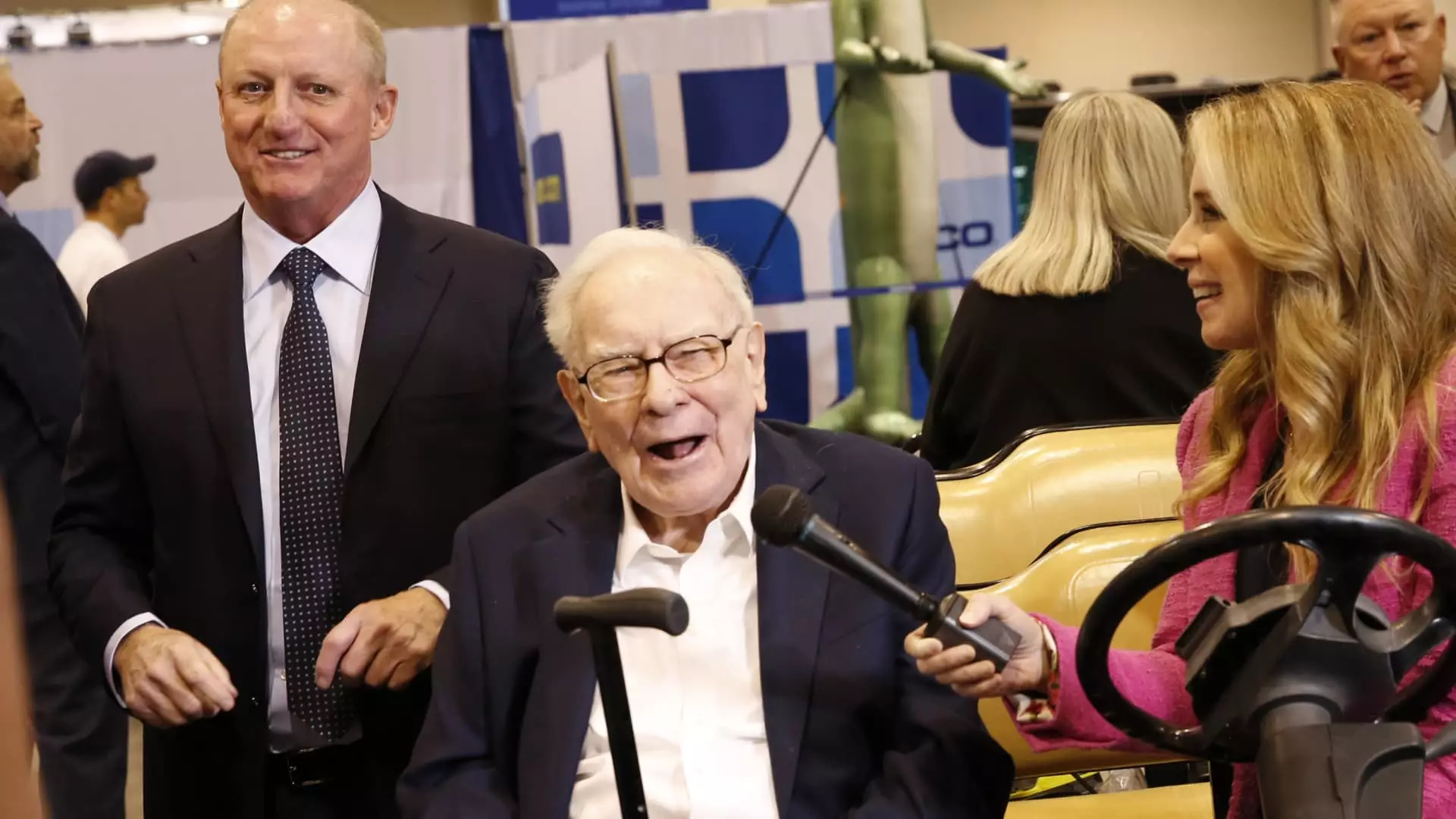Warren Buffett’s impending departure from the CEO role at Berkshire Hathaway marks not just the end of an era but the culmination of a phenomenal investment journey that has redefined financial success over the past six decades. Under Buffett, Berkshire has delivered an astonishing compounded annual return of nearly 19.9%. To put that in perspective, that’s almost double the S&P 500’s own respectable 10.4% during the same period. Such figures are not merely numbers; they represent a legacy that many investors can only dream of achieving.
What’s even more jaw-dropping is the sheer volume of returns. Berkshire’s stock has skyrocketed by 5,502,284% since Buffett took the reins of what was a struggling textile firm back in 1965. This outrageous performance places them leagues ahead of the broader market, and it represents a financial blueprint that combines astute decision-making with an unshakeable commitment to value investing. Nothing illustrates his genius more than the fact that Berkshire has consistently outperformed the market even during downturns, effectively “side-stepping” inevitable market collapses.
Event-Driven Management Style
Buffett’s management style has often been described as event-driven. His ability to recognize and seize opportunities at the opportune moments is legendary. In 1998, for instance, when the S&P 500 grew by a solid 28.6%, Berkshire’s stock was buoyed by an incredible 52.2%. The company’s performance in 1976, where it grew a staggering 129.3% while the S&P only gained 23.6%, is testament to this skill.
This savvy approach to management has led to Berkshire’s unique positioning in the investment landscape. While other companies often succumb to market pressure, Buffett has maintained a long-term vision. This focus on value over short-term gains speaks volumes about his character and organizational philosophy. In a world filled with frantic trading and speculation, Buffett’s measured pace may soon become a lost art.
The Market’s Unpredictability and Resilience
However, no journey is without its bumps. Even Buffett’s empire saw moments of underperformance, such as when Berkshire lagged in comparison to a rebounding S&P 500 in 2023. The company’s stock only grew by 15.8%, trailing markedly behind the index’s 26.3% surge. These instances serve as harsh reminders that even the most astute investors can face challenging landscapes.
Yet, it’s worth mentioning that these downturns often occur during economically turbulent times — a reality that can test even the staunchest of value investors. Financial experts, like Jeremy Siegel from the University of Pennsylvania, affirm that for value investors, Berkshire’s performance over the past decade has been extraordinarily resilient, especially given the tumultuous economic climate.
A Future Under New Leadership
With the announcement of Greg Abel stepping into the CEO role, many are left wondering if Berkshire can continue this legacy. The pressure on Abel is undeniable; he inherits not just a company but an ideology deeply rooted in Buffett’s visionary mindset. The transition will not merely be about retaining stellar returns; it is also about maintaining the ethical and operational culture that has made Berkshire a shining beacon in a sea of mediocrity.
Buffett’s decision to remain as chairman should provide some continuity, ensuring that the strategies so carefully crafted over the decades don’t slip into obscurity. However, leadership isn’t just about maintaining the status quo; it’s about innovation and the ability to pivot swiftly in a constantly evolving market. Can Abel’s vision align with the legacy left by Buffett?
The Broader Implications for Value Investment
Buffett’s legacy poses larger questions for investors about the future of value investing. In an age characterized by rapid technological changes and increasingly fluid market dynamics, can the traditional principles that Buffett championed still hold water? The high volatility of stocks like those in technology raises eyebrows among traditional value investors, creating an environment where skepticism reigns.
Additionally, considering the economic landscape marked by macroeconomic fluctuations and uncertainty, it’s pivotal for the next generation of investors to draw insights from Buffett’s journey. The approach of focusing on solid companies with intrinsic value may yet prove itself again, but the execution may look remarkably different in a tech-dominated world.
With Buffett’s departure on the horizon, the question is whether his deep-rooted philosophies will influence Abel and, in turn, the broader investment community. The industry needs new leaders who can similarly blend timeless investment wisdom with innovative strategies that reflect current realities. Only time will tell if Berkshire Hathaway can continue to rise amongst giants, or if it becomes another tale of corporate legacy overshadowed by the challenges of a new era.

